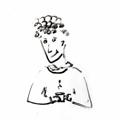ogd5XOt@bookwyrm.social reviewed The Quiet American by Graham Greene
Authentic and Beautifully Written
5 stars
Graham Greene served with MI6 during World War II and traveled the world extensively both before and after. His experiences really come across in this novel, where the narrator can zero in about the small details of a locale that make it special, as well as provide some insights into life in war zones that only someone with legitimate been-there-done-that experience would have.
While the plot itself centers around a love triangle between a journalist, a Vietnamese woman, and an American operative, that almost seemed like background noise to me. What made the book special was the first person narration - a voice that was reflecting on life in general, life in Vietnam, war, intrigue and numerous other details with an authenticity that can't be fabricated.
Beautifully written and filled with realities of conflict (internal, interpersonal, and between opposing forces) that continue to resonate.


